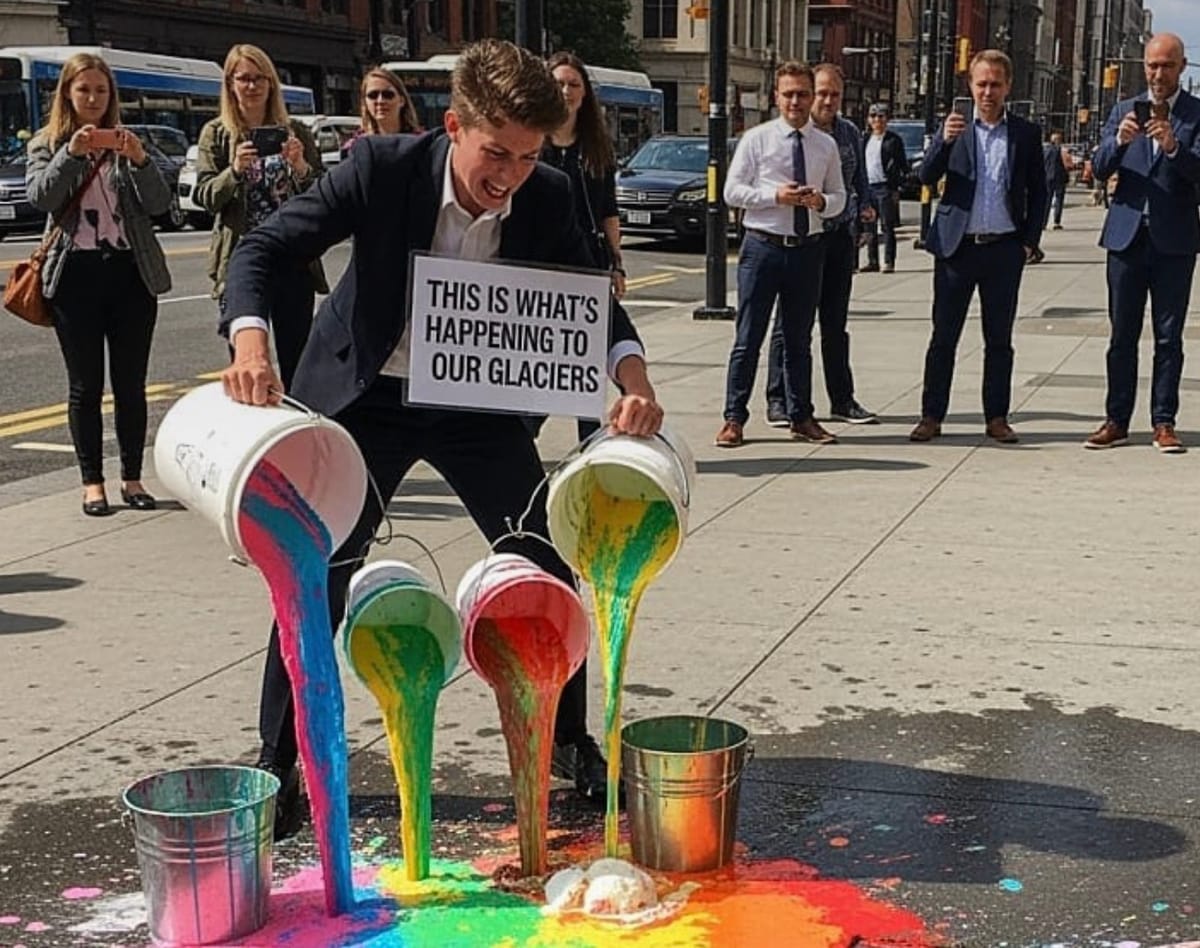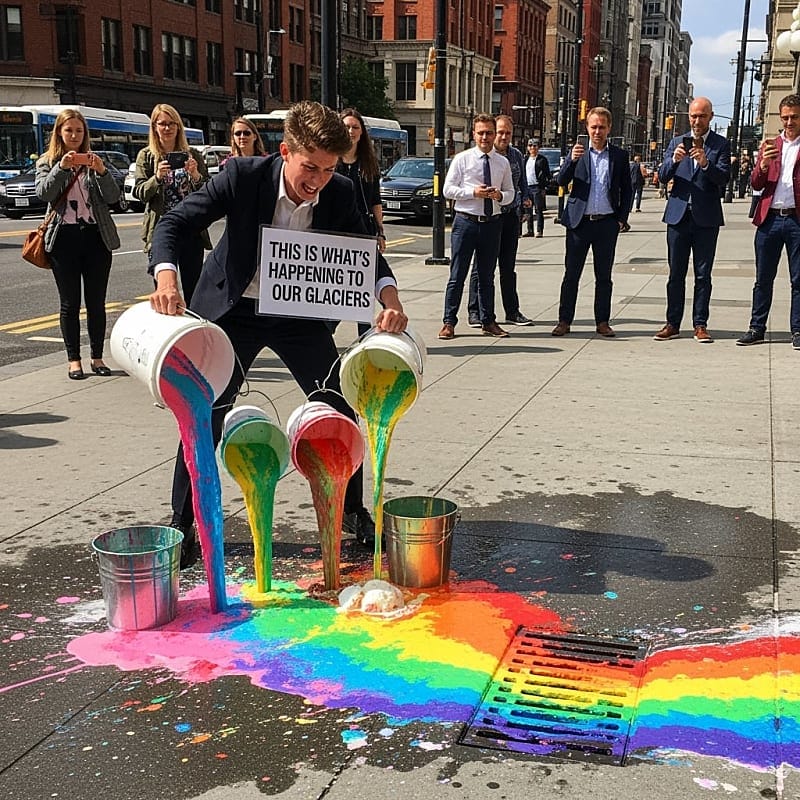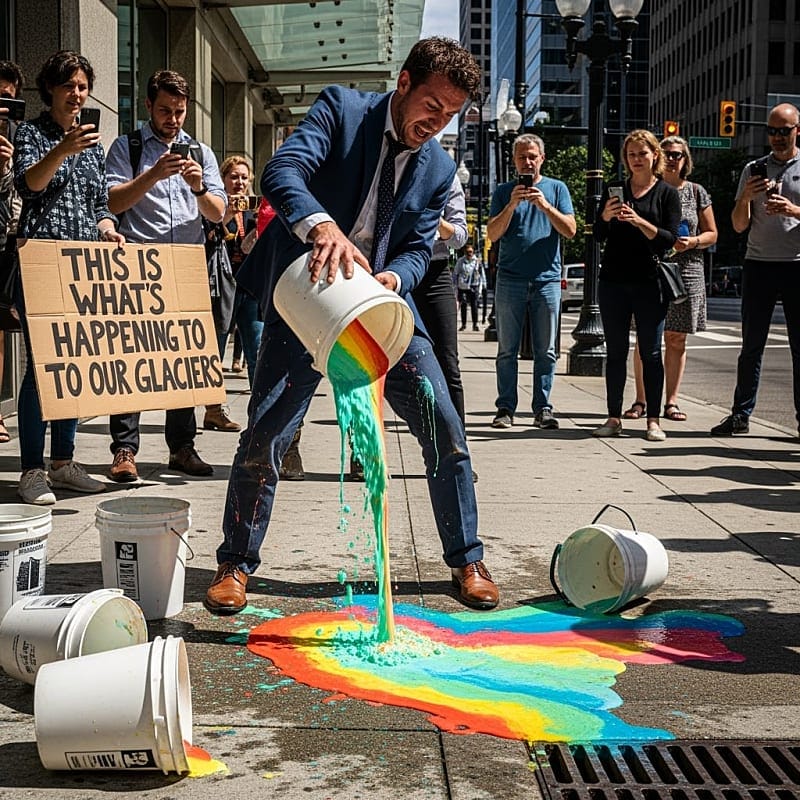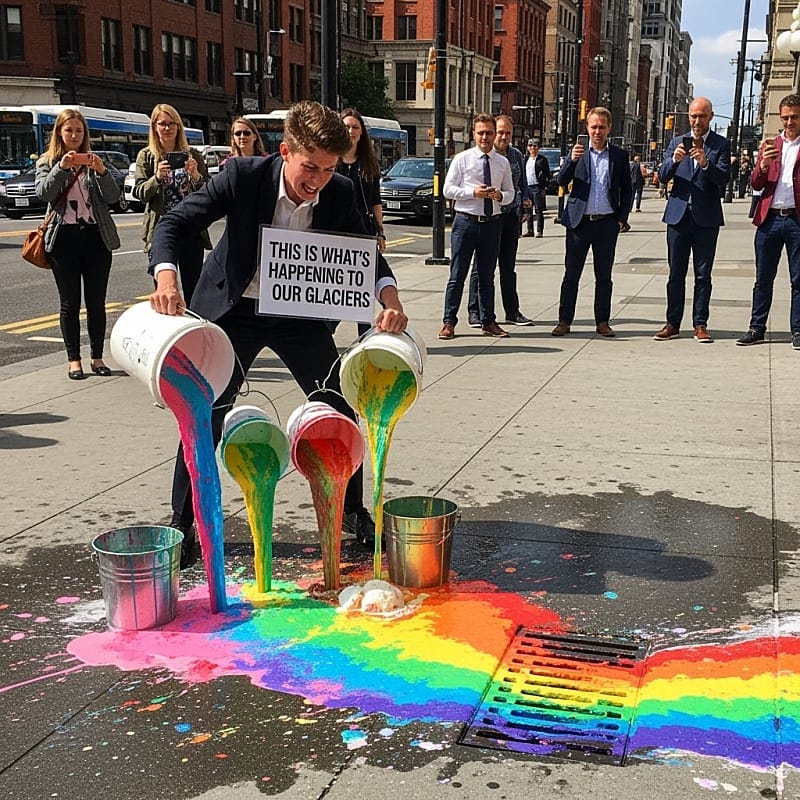Climate activist dumps dozens of ice cream buckets on downtown sidewalk to protest glacier melting

A bizarre scene unfolded in downtown Seattle as onlookers watched a man waste perfectly good ice cream in what many called a misguided publicity stunt.

Wasteful Display Draws Angry Crowd
James Morton, a self-described climate activist, dumped over 30 gallons of vanilla ice cream across a busy sidewalk during Thursday's lunch rush.
Local business owners and pedestrians were not amused by the sticky mess that created hazardous walking conditions.
"This guy just made a huge mess that somebody else has to clean up," said Mike Thompson, owner of a nearby coffee shop. "How does wasting food help anyone?"

Protest Backfires as Public Questions Methods
Morton claimed his action was meant to symbolize melting glaciers. But his message got lost in translation.
"I wanted people to visualize the crisis," Morton told reporters while being cited for public nuisance. "The melting ice cream represents Earth's vanishing ice caps."
Local environmental groups quickly distanced themselves from the stunt.
"This kind of destructive activism hurts our cause more than it helps," said Sarah Chen of Seattle Climate Solutions. "We need serious solutions, not publicity stunts."
Clean-up Costs Add Up
The city had to dispatch an emergency cleaning crew to prevent slip-and-fall accidents.
The mess took over two hours to clean and cost taxpayers an estimated $1,200.

The Real Impact
Morton's protest achieved one clear result: uniting people against wasteful activism.
Local food banks expressed dismay that edible food was destroyed for publicity.
"That ice cream could have fed dozens of hungry families," said Food Bank director Tom Williams. "Instead it became a dangerous mess on our streets."
Morton faces fines up to $500 and possible community service hours. He declined to comment on whether he plans future demonstrations.
The incident has sparked debate about effective climate activism versus attention-seeking stunts that may harm legitimate environmental causes.



